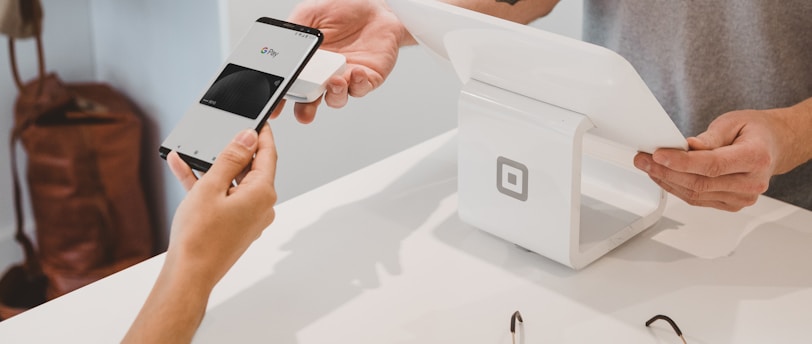Referral Marketing for Fintech Startups: How to Use Word-of-Mouth to Grow Your Business
This article explores how fintech startups can use referral marketing to grow their business and acquire new customers through word-of-mouth. From setting goals to designing a referral program and tracking its success, this comprehensive guide provides actionable steps and best practices for leveraging the trust and network of your existing customers. Discover how referral marketing can help you take your fintech startup to the next level.
ENTREPRENEURSHIP & MARKETINGFEATURED ON HOMEPAGE
Tanya Kabuya
5/3/20234 min read


As a fintech startup, you're always looking for ways to grow your business and gain more customers. And with funding being tight, one may need to make the marketing budget stretch a lot more. One of the most effective ways to do so is through referral marketing. Referral marketing is the process of encouraging and incentivizing your existing customers to refer new customers to your business. By leveraging the trust and network of your customers, referral marketing can help you acquire new customers at a lower cost and with a higher retention rate than any other marketing program. This old dog still got some sprint in its legs when it comes to referral marketing.
In this article, we'll explore the key steps and best practices for implementing referral marketing in your fintech startup. We'll cover everything from defining your referral goals and target audience to designing your referral program and measuring its success. By the end of this article, you'll have a comprehensive understanding of how to use word-of-mouth to grow your business and build a loyal and satisfied customer base.
Related Article: The Future of Africa: Fintech and The Gig Economy
Defining Your Referral Goals and Target Audience
The first step in implementing referral marketing is to define your referral goals and target audience. Referral goals are the specific outcomes you want to achieve through your referral program, such as acquiring new customers, increasing customer loyalty, or boosting your brand awareness. To set your referral goals, you need to consider your business objectives, customer demographics, and competitive landscape. For example, if you're a new fintech startup, your primary goal might be to acquire new customers and establish your brand presence in the market.
Once you've defined your referral goals, you need to identify your target audience. Your target audience is the group of people who are most likely to refer new customers to your business, such as your existing customers, business partners, or social media followers. To identify your target audience, you need to analyze their demographics, behavior, and preferences. For example, if your target audience is young millennials who are tech-savvy and value convenience and transparency, you might want to design a referral program that rewards them for sharing your app or using your service.
Designing Your Referral Program
The next step in implementing referral marketing is to design your referral program. Your referral program is the set of rules, incentives, and mechanics that govern how your customers can refer new customers to your business. To design your referral program, you need to consider the following factors:
Referral mechanics:
You need to decide how your customers can refer new customers to your business, such as through email, social media, or in-person conversations.
Referral incentives:
You need to develop incentives for both the referrer and the referee, such as discounts, credits, or cash rewards.
Referral tracking:
You need to set up tracking mechanisms to monitor and measure the success of your referral programs, such as by using referral codes, cookies, or pixel tracking.
Referral messaging:
You need to craft compelling messaging and creative assets that motivate your customers to refer new customers to your business, such as personalized referral invitations, social proof, or gamification.
Implementing Referral Marketing for Fintech Startups
Once your referral marketing strategy is in place, you can launch your referral program and encourage word-of-mouth marketing. There are various tactics you can use to promote your referral programs, such as sending personalized referral invitations, offering time-limited incentives, or providing social proof through customer testimonials or case studies. You can also leverage social media and influencers to reach a wider audience and amplify your referral program. For example, you can partner with popular bloggers or YouTubers who share your target audience and offer them exclusive incentives to promote your business.
To ensure the success of your referral program, you need to follow some best practices. First, you need to provide excellent customer service to ensure customer satisfaction and loyalty. This means responding promptly to customer inquiries and feedback, providing personalized solutions, and going the extra mile to exceed their expectations. By providing outstanding service, you increase the likelihood that your customers will recommend your business to their friends and family.
Secondly, you need to make your referral program easy to use and accessible. This means providing clear instructions, user-friendly interfaces, and multiple referral channels. You also need to ensure that your referral program is compatible with different devices and platforms, such as desktops, smartphones, and social media networks. The more accessible and convenient your referral program is, the more likely your customers will use it and share it with others.
Thirdly, you need to track and measure the success of your referral program. This means setting up key performance indicators (KPIs) and analytics tools to monitor the performance of your referral programs, such as the number of referrals, conversion rates, customer lifetime value, and cost per acquisition. By analyzing these metrics, you can identify areas of improvement and optimize your referral program to achieve your goals.
Conclusion
In conclusion, referral marketing can be a powerful tool for fintech startups to grow their business and build a loyal and satisfied customer base. By leveraging the trust and network of your existing customers, you can acquire new customers at a lower cost and with a higher retention rate. To implement referral marketing, you need to define your referral goals and target audience, design your referral program, launch and promote your referral program, and follow best practices to ensure its success. With these steps and best practices in mind, you can use word-of-mouth to take your fintech startup to the next level.


About The Contributor
Tanya Kabuya is the founder of Wizz Digital, a South Africa & Nigeria-based marketing strategy consultancy that assists Tech Startups & consulting businesses to grow their audiences, attract clients, and cultivate brand recognition through social media by deploying the Content Marketing Ecosystem Playbook, our proprietary Framework. Find out more
You might also enjoy...
Copyright 2023-2025 | All Rights Reserved Business Creed Magazine | Privacy Policies
